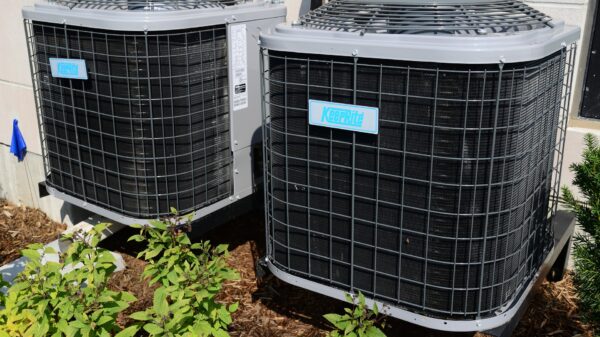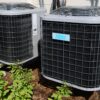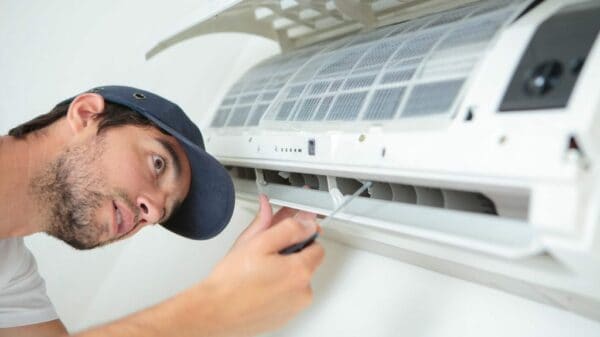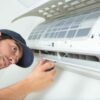Energy efficiency ratings are nothing new, but the march toward greener practices has picked up quite a bit of steam in the last few years. All industries have seen a shift toward pursuing methods and technologies that aim to protect the environment – including the HVAC industry.
Green methodologies and improved technologies in HVAC are benefitting industry professionals and consumers alike. For instance, more efficient HVAC systems are easier for technicians to maintain, and the same units also lower the energy costs for homeowners and businesses.
Do you want to know how the HVAC industry is transforming in 2018 thanks to more energy-conscious practices? Read on below to learn more about what drives these changes, the technologies that are involved, and the tools revolutionizing the HVAC world.
What’s Leading the Drive Toward Green Energy?
Green energy is ramping up in 2018 due to stricter government regulations, consumer demand, and a desire to remain competitive within the industry. Here are some specific reasons why the HVAC industry is pushing to be more energy-conscious:
-
Energy conservation and cost savings. Energy Star equipment can use up to 30% less energy than non-energy label products; this reduces costs for residential and commercial properties significantly. The average building in the US can use up to 40% of its overall energy on heating and cooling, so energy efficient equipment can make a big difference in the course of a year.
-
Environmental concerns. Many developed countries desire energy efficient equipment to improve air quality and reduce the effects of climate change.
-
Higher standards. Programs like Leadership in Energy and Environmental Design (LEED) require the industry to provide more energy efficient options. LEED certified buildings are cheaper to operate and are increasingly in demand.
-
Better preventative methods. Today’s energy efficient products possess improved technology capabilities and can notify a user or technician when they self-detect an issue.
Between consumer desires and government requirements, the need for energy efficiency will only increase. The HVAC industry is responding by changing the way it thinks about basic processes.
Technologies That are Helping HVAC Go Greener
Just about any HVAC system you can name is being revolutionized by the introduction of energy efficient practices. HVAC companies are putting increased focus on addressing the optimization of heating and cooling systems by:
-
Going ductless. Ductless air conditioners and heaters cost more up front, but they save the operator money in the long run. A standard duct HVAC system can result in a loss of up to 25% of energy due to leaks; ductless systems eliminate most of this energy loss because air runs more directly from an outdoor compressor to the indoor unit.
-
Using solar power. Turning to solar energy can save people a significant amount of money in the long run and keep buildings compliant for efficiency certifications. A home with solar panels installed, for instance, could realize a savings of $30,000 over the course of 20 years. Many solar panel improvements also have tax credits associated with them for the year they’re installed – an added bonus.
-
Tapping into the Internet of Things. Appliances and machines are increasingly connected to Wi-Fi — even refrigerators are able to get online and respond to user commands. HVAC equipment can benefit from this type of technology by detecting when there is an issue with a coil or other component and alerting the owner via email. This allows a technician to fix problems early on and avoid wasting energy for weeks until a user identifies that a leak or other issue has occurred. Smart thermostats allow people to remotely control their HVAC equipment, so an AC unit is never again left on for an entire weekend by accident.
As entire systems are revamped within the HVAC world, there will not only be new opportunities for making money, but an increased need for an innovative mindset.
Tools for Energy Efficient HVAC in the Future
We’ve seen that HVAC systems are being changed at the system level. But which tools are being used to execute these improvements? As the industry shifts toward more energy efficient practices, practitioners will need to become familiar with the parts that are replacing outdated technology. Some of the ways HVAC professionals are changing their systems including swapping out existing components and units for:
-
Geothermal heat pumps. Geothermal heating is not new — it’s been around since the 1940s. Yet as buildings move toward more energy efficient measures, we may see an increased interest in these units, which harness the natural internal heat of the earth to regulate heating and cooling in a building.
-
Better air filters. Dirty and inefficient air filters can cause a system to work twice as hard to supply the same heating and cooling as a more efficient system. Switching an old filter to one with a MERV (Minimum Efficiency Reporting Value) rating of 10 or higher will ensure more allergens are removed from the air without any additional labor by the system.
-
Advanced sensors. Advances in sensors allow them to detect movement in the room, so air conditioning doesn’t continue to run on maximum capacity after everyone has left the room. The technology is becoming even more advanced, so much so that future sensors may be able to count the number of people in a space and use that information to dictate how much heating and cooling is used.
Companies in the HVAC industry are also pursuing new ways to make sealing, ventilation, and cooling coils more efficient to cut energy costs. An influx of new components delivers the potential for savings, but it’s up to professionals in the field to best leverage the tools available to them to actually see real results.
As consumers and regulatory entities become increasingly aware of the need for more energy efficiency, the HVAC industry will continue to respond. Thanks to a swell of availability of new components and technology, 2018 aims to be a year of massive positive change and growth in the industry.
How will you pivot your practices to meet the need for more energy efficiency?
Kevin Burns is the President of Bob Jenson Air Conditioning in San Diego with over 29 years of experience in the HVAC Field. He has worked in every aspect of the industry and has trained dozens of people. He has a passion for doing what’s right for each home and customer and sets this standard for his entire team.

1 Comment
Leave a Reply
Cancel reply
Leave a Reply
This site uses Akismet to reduce spam. Learn how your comment data is processed.























































































































































































Greg
June 18, 2019 at 9:40 pm
It’s incredible to see how quickly the AC industry is evolving into a more green focused and energy conserving field. We’re primarily focused on Ductless systems at the moment because of how energy efficient they are and how affordable the installation can be.